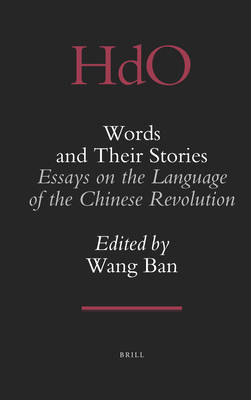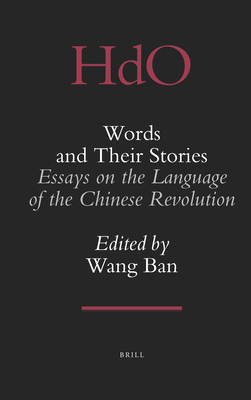
- Afhalen na 1 uur in een winkel met voorraad
- Gratis thuislevering in België vanaf € 30
- Ruim aanbod met 7 miljoen producten
- Afhalen na 1 uur in een winkel met voorraad
- Gratis thuislevering in België vanaf € 30
- Ruim aanbod met 7 miljoen producten
Zoeken
Words and Their Stories
Essays on the Language of the Chinese Revolution
€ 276,45
+ 552 punten
Omschrijving
As China joins the capitalist world economy, the problems of social disintegration that gave rise to the earlier revolutionary social movements are becoming pressing. Instead of viewing the Chinese Revolution as an academic study, these essays suggest that the motifs of the Revolution are still alive and relevant. The slogan "Farewell to Revolution" that obscures the revolutionary language is premature. In spite of dislocations and ruptures in the revolutionary language, to rethink this discourse is to revisit a history in terms of sedimented layers of linguistic meanings and political aspirations. Earlier meanings of revolutionary words may persist or coexist with non-revolutionary rivals. Recovery of the vital uses of key revolutionary words proffers critical alternatives in which contemporary capitalist myths can be contested.
Specificaties
Betrokkenen
- Uitgeverij:
Inhoud
- Aantal bladzijden:
- 352
- Taal:
- Engels
- Reeks:
- Reeksnummer:
- nr. 27
Eigenschappen
- Productcode (EAN):
- 9789004188600
- Verschijningsdatum:
- 5/10/2010
- Uitvoering:
- Hardcover
- Formaat:
- Genaaid
- Afmetingen:
- 165 mm x 246 mm
- Gewicht:
- 675 g

Alleen bij Standaard Boekhandel
+ 552 punten op je klantenkaart van Standaard Boekhandel
Beoordelingen
We publiceren alleen reviews die voldoen aan de voorwaarden voor reviews. Bekijk onze voorwaarden voor reviews.










